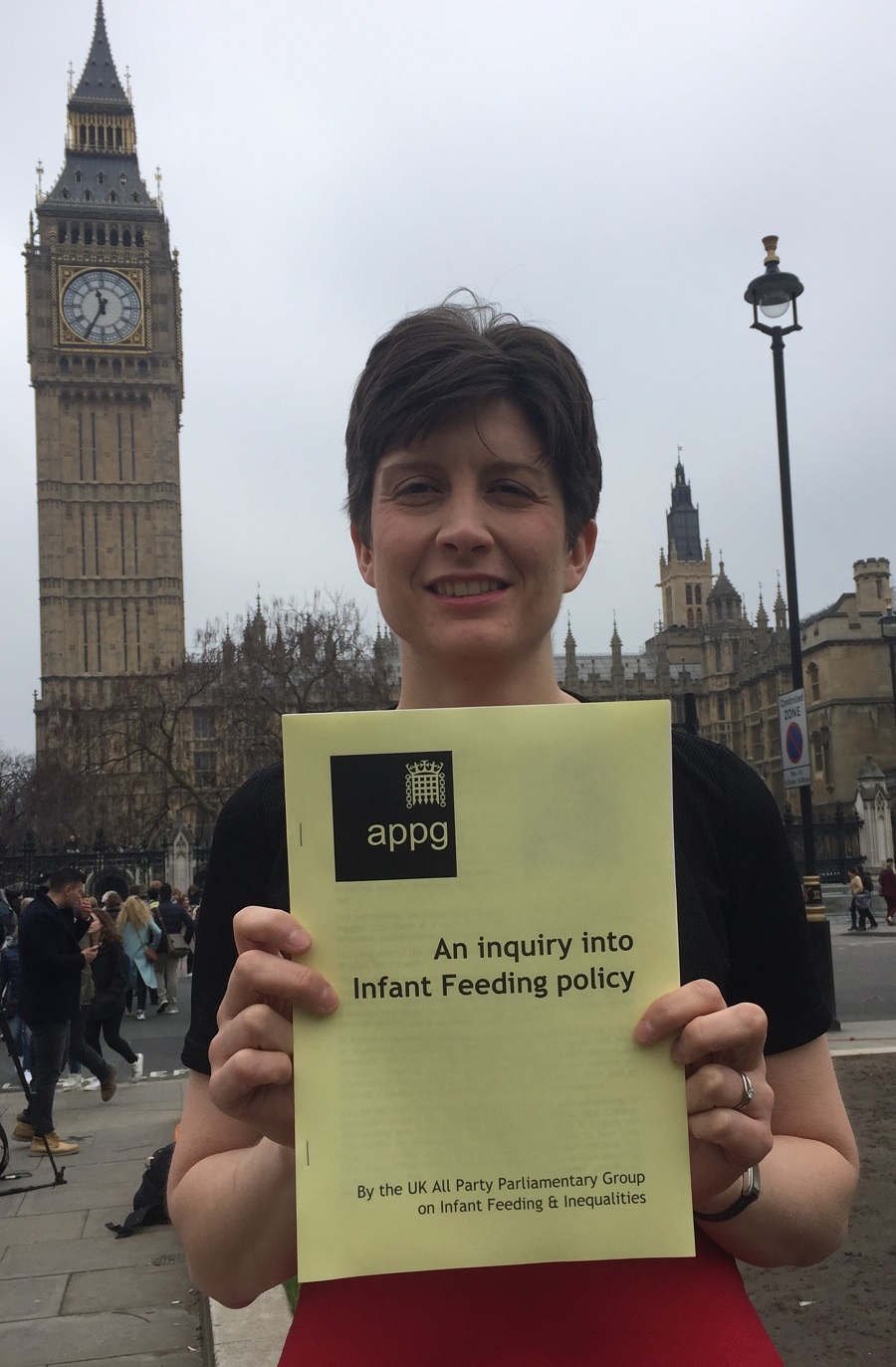An inquiry into infant feeding policy has been launched by a parliamentary group of MPs in Westminster.
The All Party Parliamentary Group (APPG) on Infant Feeding & Inequalities today opened the call for evidence on its wide-ranging inquiry into infant feeding policy. As well as focussing on the challenges around bottle feeding, the inquiry will examine why the UK has the lowest breastfeeding rates in the world.
The inquiry which, upon conclusion, will make recommendations to policy makers and Government also plans to hold oral evidence hearings in all four nations of the United Kingdom.
The terms of reference for the inquiry include:
• Exploring both the positive and negative aspects of breastfeeding support currently in place in the NHS and voluntary sector
• Exploring the impact of current gaps in service provision for advice of breastfeeding and bottle feeding
• Establishing the extent of UNICEF Baby Friendly Initiative accreditation
• Collating data on breastfeeding rates and staff support roles in all NHS authorities
• Conducting an audit of infant feeding data retention levels in each of the Governments of the four nations of the UK
• Examining current service provision for phone/online breastfeeding advice services
Speaking after launching the inquiry in London’s Parliament Square, Alison Thewliss MP said:
“For too long, infant feeding policy has been at the bottom of Ministers and civil servants’ in trays. This was demonstrated recently when the Government’s obesity strategy didn’t even reference infant feeding, despite it being a factor in future health.
“The UK has the lowest breastfeeding rates in the world, even though we know more mums would wish to breastfeed; there’s clearly an issue which needs to be addressed. In addition, feedback on my recent Formula Marketing Bill suggests there’s a real lack of impartial information and support available for those bottle feeding and I would welcome views on this.
“With ever increasing cuts to budgets, it’s been suggested that peer support funding for breastfeeding has been disproportionately slashed, so we’re also keen to look into this more and identify the gaps in service provision. Equally, though, there are a number of groups out there – albeit under pressure – doing some really innovative things to try and support families and babies.
“In taking this inquiry out of Westminster and holding evidence sessions around the UK, I am very much looking forward to hearing people’s views and collating them into a substantive report for the Government to implement.”
The deadline for written submissions to the inquiry is 9am on Monday 12th June 2017. More information is available through the APPG’s website.

As a recently retired Midwife who is passionate about breast feeding, and a tongue tie practitioner, I feel that there is little support for breastfeeding Mums. We set them up to feel they are a bad mother if they do not breast feed . However there is no scaffolding to give them help when needed. If a baby has tongue tie diagnosed they have to wait for treatment, during which time majority discontinue breastfeeding.
Too few Midwives means that breast feeding is low priority to other chores.
We need more specialist feeding Midwives and to embrace more peer supporters. Antenatal education should be available for all. At the moment most women who have education and support have paid for private classes. This is out of reach for the majority of Mums.
We know that breastfeeding reduces hospital admissions and therefore saves money. With correct investment we could educate and support women better to breastfeed resulting in improved health for Mum and baby and reduced pressure on the National Health Service.
Thankyou
It’s obvious that there needs to be more breastfeeding support its a lost skill, which is deemed impossible by formula companies from the start. The NHS needs to work more closely and help fund the charities that actually know about breastfeeding and how to support mothers who want to. The number of times I hear it suggested by NHS professionals to switch to formula when all that is needed is time and support given to the mother and child.